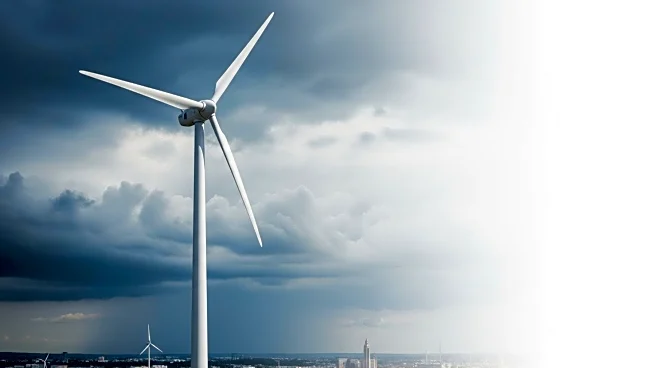What's Happening?
Jacqueline van den Ende, CEO of Carbon Equity, has emphasized the critical need for increased investment in climate tech solutions to accelerate the global transition to clean energy. Despite the fact that 90% of new electricity production worldwide in the previous year came from renewable sources, European climate tech funding has reached a five-year low in the first quarter of 2025. Van den Ende advocates for democratizing climate finance, allowing individuals to invest in pioneering climate tech companies. The European Commission's 2025 Eurobarometer survey indicates growing public support for the energy transition, with citizens actively reducing waste and consumption of disposable items. The rise in battery electric vehicle registrations in Europe further underscores the continent's commitment to clean energy.
Why It's Important?
The decline in European climate tech funding poses a significant challenge to achieving climate goals, as investment is crucial for developing technologies that can facilitate the transition to renewable energy. The public's increasing involvement in energy conservation and the rise in electric vehicle registrations demonstrate a societal shift towards sustainable practices. However, without adequate funding, the pace of innovation and adoption of clean energy solutions may slow, potentially hindering efforts to combat climate change. The situation highlights the need for strategic investments and policy support to ensure the continued growth and accessibility of clean energy technologies.
What's Next?
The focus will likely shift towards finding alternative funding sources and encouraging private investments in climate tech. European governments and organizations may need to reassess their strategies to boost funding and support for clean energy initiatives. The development of energy communities and innovative projects, such as Finland's sand battery, could serve as models for sustainable energy solutions. Additionally, the integration of electric vehicles into the energy grid through bidirectional charging technology presents opportunities for reducing energy costs and enhancing grid stability.
Beyond the Headlines
The transition to clean energy involves complex challenges, including the need for grid modernization to accommodate fluctuating renewable energy sources. The Iberian blackout incident underscores the importance of stabilizing the grid to prevent disruptions. The potential of electric vehicles as 'batteries on wheels' offers a promising avenue for energy storage and distribution, but requires infrastructure development and regulatory frameworks to ensure safety and fair pricing. Community-led initiatives and experiments could play a pivotal role in advancing energy efficiency and sustainability.










